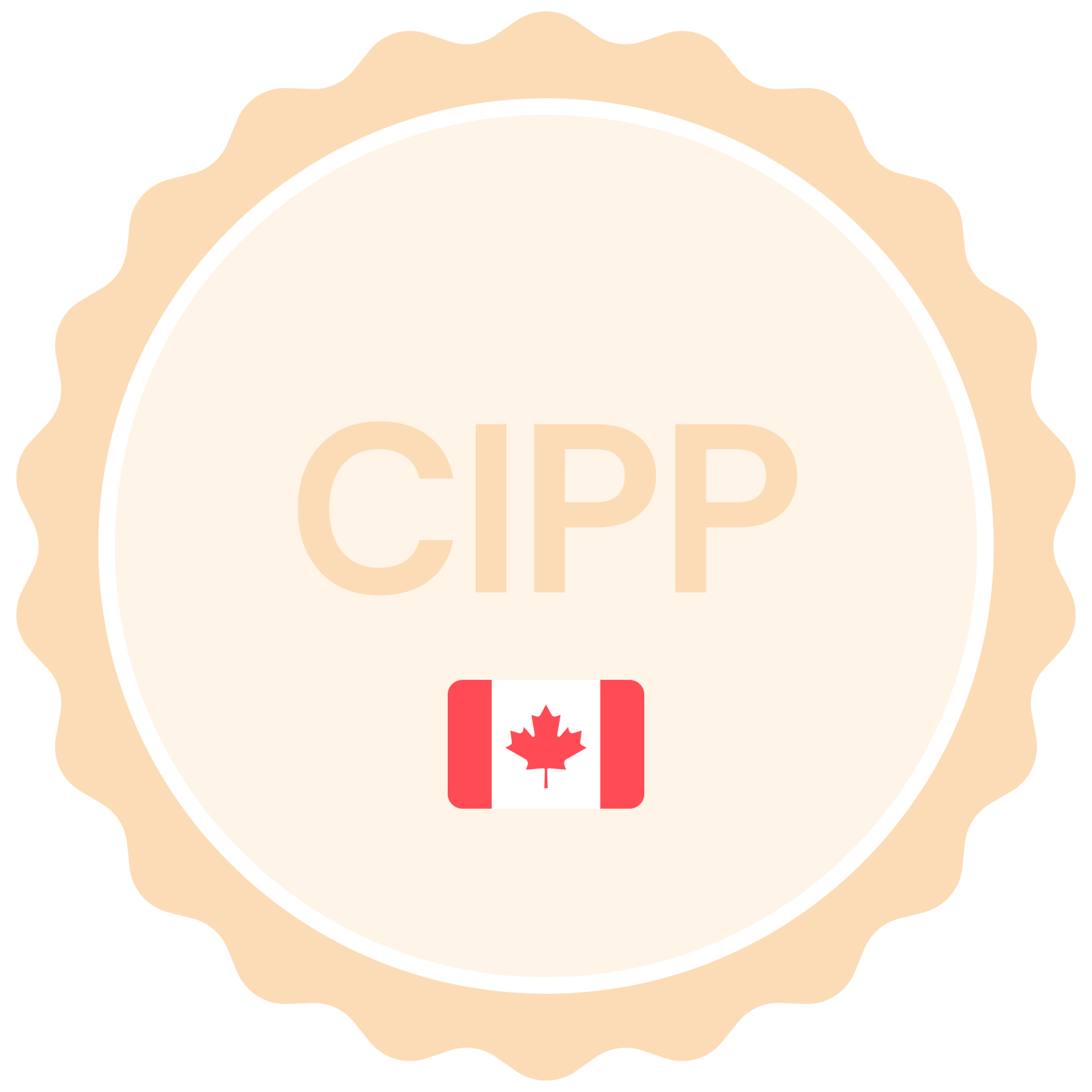Hockey, maple syrup, and the CIPP/C. What do these things have in common? They’re synonymous with our neighbors to the north, Canada.
The Certified Information Privacy Professional/Canada (CIPP/C) is one of several certifications offered by the International Association of Privacy Professionals (IAPP), a U.S.-based non-profit organization. It’s one of the four CIPP concentrations, focused by region. Other regional concentrations include the United States, Europe, and Asia.
When you obtain a CIPP certification, you’re demonstrating your deep understanding of privacy laws and regulations, and how to apply them. The CIPP/C certification specifically focuses on federal, provincial, and territorial information privacy laws, principles, and practices in Canada. Through CIPP/C certification, you’ll learn about the Canadian government and legal system, the privacy laws and practices in the private and public sectors, and more.
If this maple leaf variety of the CIPP certification sounds like it’d be right for you, read on to learn more about what’s required for CIPP/C certification, the benefits, what’s included on the exam, and how to prepare for the exam.
What is Required to Obtain and Maintain the CIPP/C Certification?
There’s only one requirement for CIPP/C certification. Consistent with the other CIPP concentrations, the IAPP requires a passing score on the CIPP/C exam in order to get certified. The exam consists of 90 multiple-choice questions, in which you have two and a half hours to complete.
Other than passing the exam, there are no other requirements for obtaining your CIPP/C. There are no prerequisites, such as a certain number of years of experience, which makes it a great option for aspiring privacy professionals.
In order to maintain your CIPP/C qualification, you’ll need to submit 20 hours of Continuing Privacy Education (CPE) credits and pay an annual certification maintenance fee of $250 USD per 2-year certification term. However, if you have an IAPP membership, the $250 fee is waived.
- Learn about the costs of IAPP certification by visiting our article: What Are the Costs of IAPP Certification?
What Are the Benefits of CIPP/C Certification?
As a privacy professional, any IAPP certification is going to look great on your resume. The IAPP certifications are globally recognized and demonstrate your extensive knowledge of data and privacy protection.
In fact, IAPP certifications are often listed as required or preferred qualifications in job descriptions. All it takes is a search by “CIPP/C” keyword on a popular job board, like PrivacyJobBoard.com, and you’ll see the designation is often mentioned. This is true for a wide range of professions—beyond just the legal profession— across many different industries.
As a more competitive job candidate with CIPP/C certification, it’s also likely you’ll have a more competitive salary to match. According to a 2023 IAPP Privacy Professionals Salary Survey (access for IAPP members only) polling 1,500 participants, having a CIPP certification next to your name can get you an average base salary that’s nearly $30,000 higher than someone without an IAPP qualification.
Who Typically Obtains the CIPP/C Certification?
Overall, the CIPP exams are heavily focused on law. The CIPP/C covers specific laws and regulations related to handling personal data in Canada. For this reason, many people who obtain the CIPP/C are lawyers.
However, not all CIPP/C certification holders are legal professionals. Non-legal professionals can also benefit from obtaining a CIPP certification. Whether you’re a privacy engineer, privacy manager, or work in accounting or human resources, obtaining the CIPP/C credential could benefit you in your career development and cross-functional collaboration with colleagues focused on Canadian privacy laws and regulations.
The CIPP/C is commonly held in Canada. However, you may work in the U.S. for a Canadian-based company or a U.S.-based company that services Canadian customers, in which case the CIPP/C certification would benefit you as well.
What is Tested on the CIPP/C Exam?
The CIPP/C Body of Knowledge and Exam Blueprint, a free resource offered by the IAPP, documents the knowledge and skills you will be assessed during the certification exam. The CIPP/C exam is separated into four domains:
- Domain I: Introduction to Privacy in Canada
- Domain II: Canadian Privacy Laws and Practices – Private Sector
- Domain III: Canadian Privacy Laws and Practices – Public Sector
- Domain IV: Canadian Privacy Laws and Practices – Health Sector
Within the Body of Knowledge, or BoK, you’ll find the competencies and corresponding performance indicators for each domain. Competencies are groups of connected tasks and abilities, making up a broad knowledge domain, whereas performance indicators are the distinct tasks and abilities that make up the broader competence group.
The exam questions will assess your proficiency on the performance indicators, and you’ll encounter both straightforward questions that test specific knowledge and questions that require an application of knowledge.
What Comes with Privacy Bootcamp’s CIPP/C Test Preparation Course?
At Privacy Bootcamp, we have designed our CIPP/C test preparation course to be a comprehensive, all-in-one training resource. Our course comes with the following:
- An e-textbook study guide broken down into more than 75 guided learning modules
- More than 650 digital flashcards
- A bank of more than 450 practice exam questions
- More than 10 digital exercises
- A quick reference “cheat sheet” that pulls out the important points of each study module and provides a concise outline of what you need to know to find success
- A live-exam environment that is modeled after the actual exam software, which allows our students to take practice exams under real-world conditions
You can see how we’ve organized our CIPP/C course by visiting the Preview Page or the CIPP/C Preview Page and clicking on “Table of Contents” button on either page.

